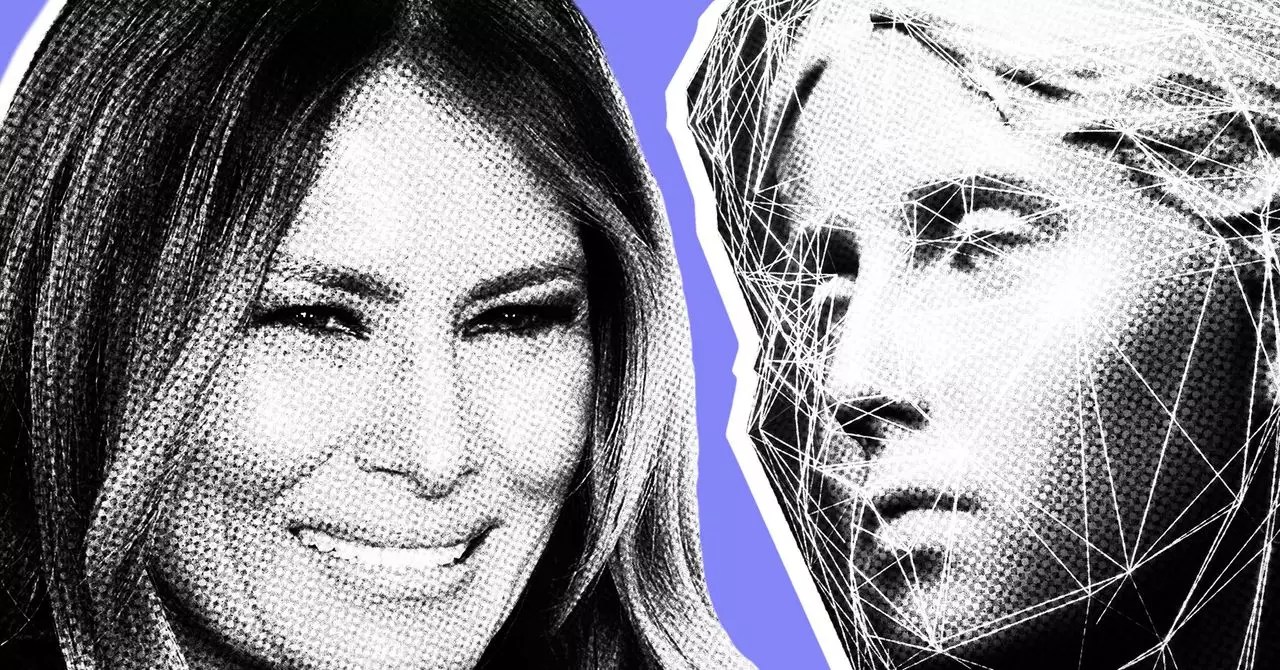In a landscape dominated by tech giants and government agencies, the involvement of Melania Trump in artificial intelligence initiatives marks a surprising yet strategic move. Historically, first ladies have often played symbolic roles or championed social causes, but Melania’s recent engagement hints at a more active and influential position in a technological domain that could redefine future societal norms. Her entry into AI advocacy is not merely a stage act; it signals an intent to influence policy, corporate commitment, and perhaps, the ethical trajectory of AI development in the United States.
While her precise goals remain shrouded in ambiguity—ranging from protecting children from the risks of AI to ensuring the nation’s technological competitiveness—the potential impact is profound. Her participation suggests an effort to connect political leadership with industry powerhouses, thus creating a bridge that could fast-track commitments from major corporations and foster a culture of accountability and innovation. This is a significant departure from traditional political advocacy, emphasizing the influence that first ladies can wield behind the scenes, especially when aligned with the tech sector’s interests.
The Power Dynamics Behind the Scenes
The current administration’s approach to AI policy reveals a concerted effort to prioritize economic and strategic dominance. With figures like David Sacks overseeing AI policy and Michael Kratsios managing the Office of Science and Technology Policy, the government underscores its ambition to accelerate innovation while fostering infrastructure growth. The push for AI standards, domestic semiconductor manufacturing, and data center expansion exemplifies a strategic blueprint aimed at reducing dependency on foreign, particularly Chinese, technologies.
However, what stands out is the administration’s dual narrative—championing rapid innovation while policing the social and ethical dimensions of AI, such as combating “woke AI.” These conflicting priorities highlight the complex terrain policymakers must navigate—balancing technological progress with societal values, national security, and economic interests. Within this context, Melania’s role could serve as a stabilizing influence or a negotiator, helping align corporate ambitions with broader societal concerns.
Industry Reactions and the First Lady’s Subtle Power
The AI industry’s reception of Melania’s involvement appears cautiously optimistic. Industry insiders note her comfort within the tech ecosystem, especially her attentive listening and engagement at the AI dinner. Her interactions with influential figures like Gerelyn Gilbert-Soto, wife of Google cofounder Sergey Brin, suggest a desire to be perceived as an advocate who understands the nuances of technological innovation.
This approach could serve multiple purposes: legitimizing her position, gaining industry support, and ultimately, influencing policy in favor of responsible AI development. Her public support, although initially superficial, could translate into substantial commitments from corporations eager to align with the first lady’s emerging agenda. Such political symbolism, when combined with the industry’s appetite for regulatory clarity and strategic advantage, positions her as a potentially formidable figure in shaping future AI policies.
Implications for the American Tech Landscape
Melania’s shift from a silent partner in political discourse to an active supporter of technological innovation demonstrates a strategic recalibration of her influence. Her involvement is particularly compelling given the high stakes of AI dominance—an arena that intertwines economic strength, national security, and societal stability. If her backing can mobilize firms to commit sizable investments or adopt ethical standards, her influence could accelerate America’s leadership in AI—an outcome favorably viewed by industry insiders and policymakers alike.
Yet, her role also raises questions about the transparency and depth of her commitments. Will her influence be merely symbolic, or will she actively shape concrete policies that address the profound risks associated with AI, such as privacy invasion, deepfake proliferation, and job displacement? The current silence around her specific initiatives signals either strategic caution or a lack of clarity about her long-term objectives.
Melania Trump’s emerging role in AI advocacy exemplifies how personal influence can intersect with technological progress to produce meaningful societal shifts. While her exact goals remain hidden behind political veils, her proactive engagement with key industry figures signals a bold attempt to mold America’s technological future from the inside out. Whether this will translate into tangible policy shifts, industry commitments, or ethical standards remains to be seen.
What is clear, however, is that her involvement attempts to elevate the first lady’s role from social promoter to strategic partner in shaping America’s digital destiny. The influence she wields—whether by design or circumstance—could be a turning point in how the nation navigates the formidable challenges and opportunities that artificial intelligence presents. Her bold move defies traditional expectations, asserting that leadership in 21st-century technology may no longer be confined to the halls of Congress or corporate boardrooms—it could also be wielded from the sidelines by influential figures like Melania Trump.

